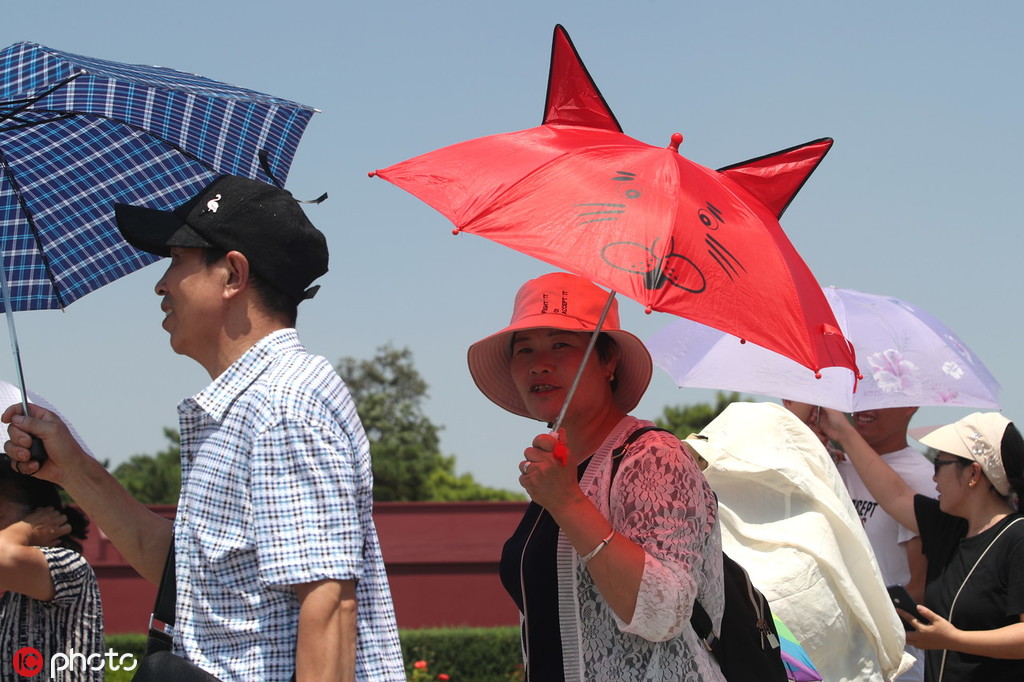Brief relief from heat wave ahead
By Li Hongyang | China Daily | Updated: 2019-07-31 09:16

The heat wave scorching most parts of China will ease by Friday, according to the National Meteorological Center.
He Lifu, a chief forecaster at the center, said that it is uncommon to see a wide range of both northern and southern areas affected by sweltering weather like this.
According to He, temperatures have shattered July records across China in places including Beijing, Chongqing and the provinces of Hebei, Shandong, Liaoning and Sichuan.
"Over the past 10 days, temperatures in 27 provinces and regions have reached above 35 C," he said. "On Sunday, it hit the northern areas. The temperature soared to 42.7 C in Shanxi province and 38.7 C in Hebei."
However, he said that this heat wave didn't influence southern areas as much as in previous years.
"Extreme high temperatures didn't frequently come to southern parts this July," he said. "There were fewer records of 40 C or above in the south than in previous years."
Cai Xiangning, senior engineer of the center, said that the heat was caused by a subtropical high.
"After the influence of Typhoon Danas in East China ended, the subtropical high moved to the west and then to the north, which brought heat waves," she said.
According to He, northern parts have received some rainfall and temperatures have fallen since Monday as a result. By Friday, hot weather will temporarily subside for most of the nation.
"Affected by the rainfall, high temperatures are less likely to appear in such a wide range of areas in August," He said. "But the heat will still remain in areas near the Huaihe River and south regions to the Yangtze River for the first half of August.
"Rainfall brought high humidity and made people more sensitive to the heat. Even though the temperature will not be so high, people will still be uncomfortable due to the thick moisture in the air."
The center suggested that people should reduce outdoor activities or work during the afternoons. In addition, preventive measures should be taken to avoid direct sunlight.
As for the elderly, especially those with cardiovascular and digestive diseases, it would be better if they stay indoors.
























